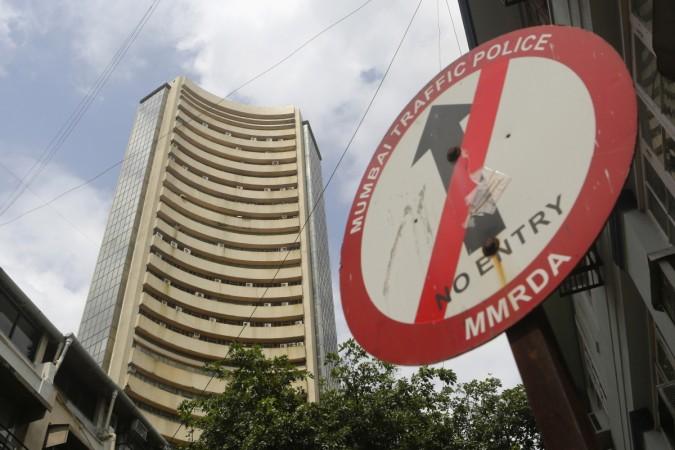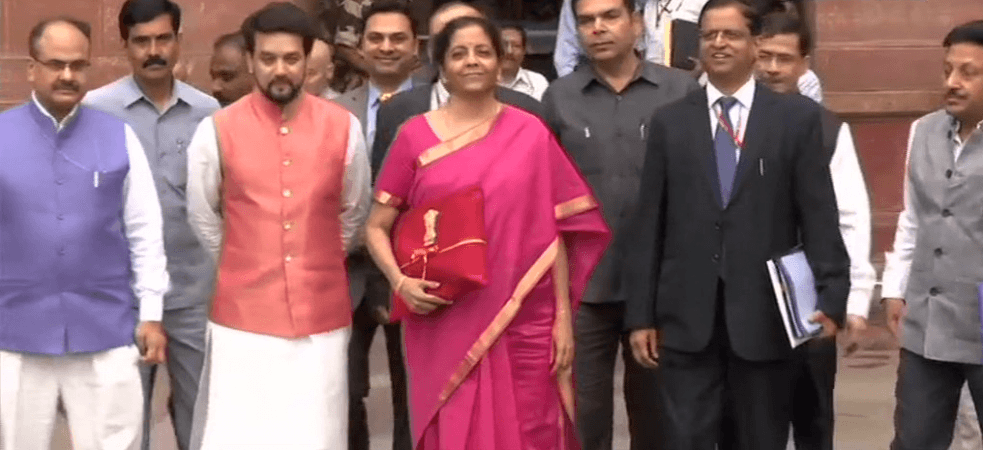
The market has been cool to Finance Minister Nirmala Sitharaman's maiden budget, which is also the first one of Modi 2.0, unlike its thumbs up to Prime Minister Narendra Modi's return to power after the Lok Sabha election results were announced. This showed the market's disappointment with the absence of hardcore structural changes in the economy that could have triggered growth.
National Stock Exchange (NSE) benchmark Nifty closed 135 points or 1.14 per cent down at 11,811 points. Bombay Stock Exchange (BSE) index Sensex closed 394 points or 1 per cent at 39,513 points. Of the 50 scrips that make up Nifty 50, only six advanced and 44 declined during the day.
The market response to the budget would be seen as a surprise especially after Sitharaman's announcement of the reduction of corporate tax for companies with up to Rs 400-crore annual turnover. This covers more than 99 per cent of companies. This is reckoned as an extremely business-friendly decision. The massive infrastructure spending proposals in the budget were also expected to boost the market sentiment.
Among the key factors that let down the market were the lack of specifics in Sitharaman's speech and her disclosure that the government had recommended to Securities and Exchange Board of India (SEBI) to consider making it mandatory for companies to offer at least 35 per cent of shares to public instead of the present 25 per cent. A supply surge, as could be expected, naturally suppresses values.

Sitharaman's announcement of the government decision to slap an additional tax on the income of high net worth individuals also must have scared the market. The government aims to raise about Rs 12,000 crore from the hike in a surcharge for the high-income group. The surcharge will be in two slabs for categories earning above Rs 2 crore and up to Rs 5 crore and more than Rs 5 crore. The effective increase in the tax rate would be around 3 percentage points for those earning up to Rs 5 crore and 7 percentage points for those above Rs 5 crore.
The government has also withdrawn the tax exemption that a shareholder of a listed company enjoyed on income arising from the buyback of shares. The proposal becomes effective from Friday. A listed company also is now required to pay tax on buyback under section 115QA at the rate of 20 per cent plus applicable surcharge and cess.
Only Nifty Bank, FMCG and PSU Bank ended up in the green while all other sectors suffered. Metal, realty, auto were the worst suffers, despite some of the incentives the budget proposed.
Some observers believe the market hoped for a more sweeping reform programme from the government at least in this first budget after Prime Minister Narendra Modi retained power with an emphatic margin in the Lok Sabha election 2019.
Market commenters look at the budget as a balancing act. "The government has tried to strike a balance between fiscal consolidation and supporting growth. With a hike in excise duties, increasing the target for divestments and for the dividend receipts, the government has made sure that overall revenue collections do not suffer. This was especially important at a time when the traction in GST and personal income tax collections remained muted. Now, with the downward revision in the collection target of these two categories, the overall revenue assumptions look much more credible and pragmatic," the Moneycontrol website quoted Abheek Barua of HDFC Bank as saying.








